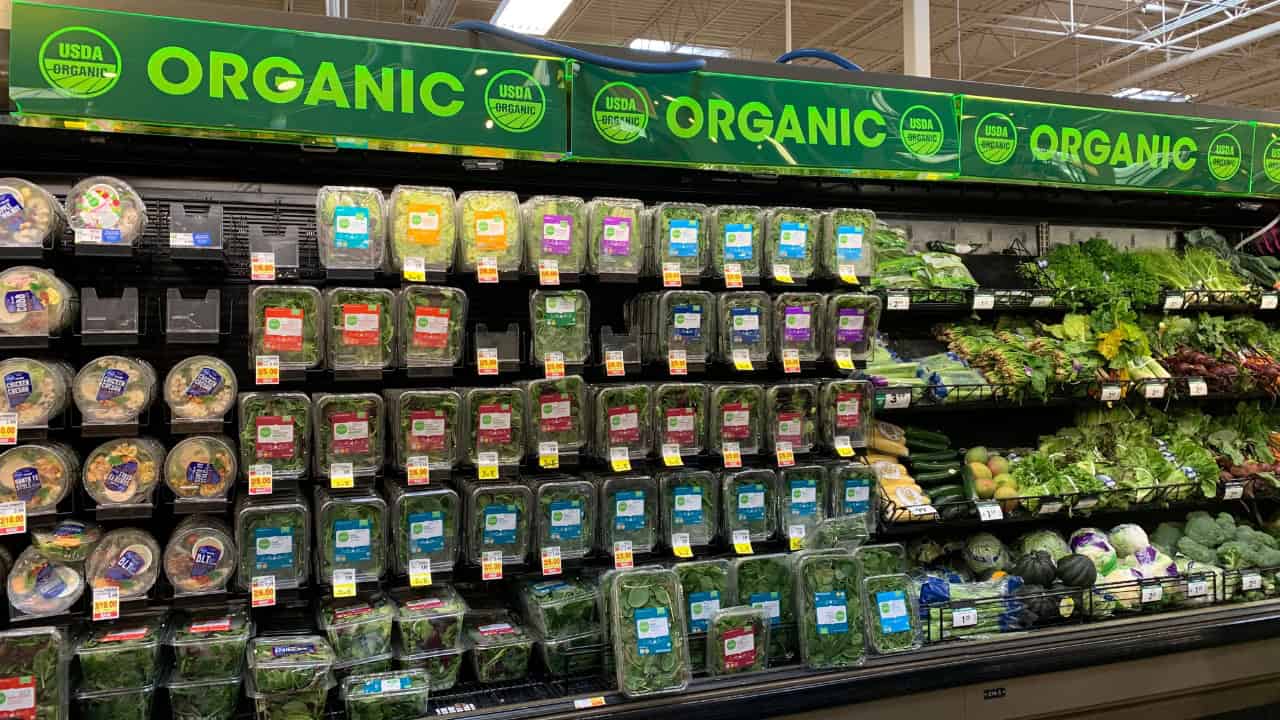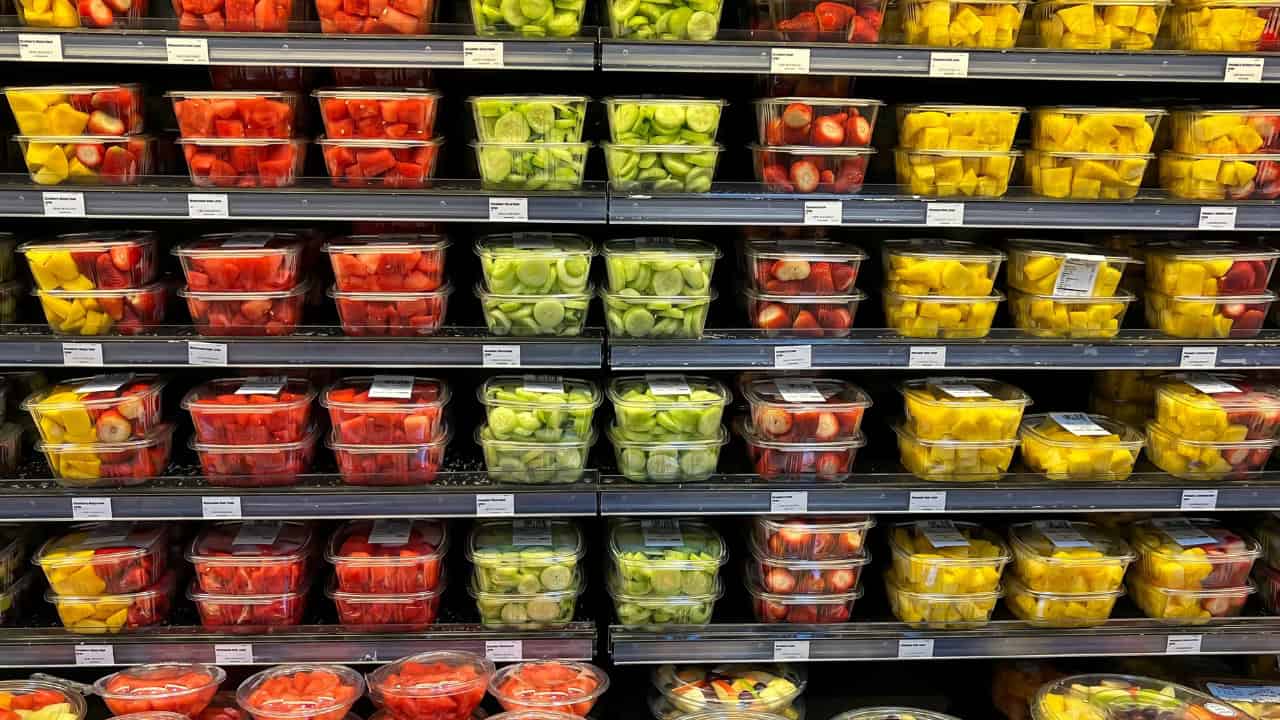It is easy to assume the organic label always means healthier or better. Sometimes it aligns with your priorities, like supporting certain farming practices or limiting some synthetic inputs. Other times, the premium does not buy a clear nutritional advantage, and your money might work harder elsewhere.
If you want to stretch your budget without sacrificing health, focus on produce variety, overall diet quality, and smart trade-offs. Prioritize organic where it matters most to you, and feel confident choosing conventional for many everyday items, especially thick-skinned produce like bananas, avocados, citrus, and onions, or pantry goods where processing levels out differences.
Organic is not always the better buy

Want to Save This Recipe?
Enter your email & I'll send it to your inbox. Plus, get great new recipes from me every week!
By submitting this form, you consent to receive emails from Walking on Sunshine Recipes.
Many shoppers reach for organic by default, yet the measurable nutrient differences between organic and conventional foods are often small. If your goal is to eat well on a budget, a balanced plate of fruits, vegetables, whole grains, and proteins matters more than the label alone. Save the premium for items you truly care about, and buy conventional when it makes sense.
Organic farms can use pesticides too

“Organic” does not mean pesticide-free. It means growers use substances approved for organic production and follow certified practices. Those inputs can still be costly and sometimes require more frequent application, which can push prices up. If you wash and peel produce and vary what you eat, you reduce exposure either way.
Organic does not automatically mean non-GMO

Organic standards restrict the use of genetic engineering, but if avoiding GMOs is your top priority, look for labels that clearly state Non-GMO along with any organic certification. Reading the fine print helps you buy exactly what you intend.
Expect higher prices on many organic items

Organic foods often cost significantly more because certification, labor, and input costs are higher. If you are watching your budget, choose conventional for items where the benefits are less clear, and reserve organic dollars for products you value most, like certain baby foods or dairy.
Health differences are mixed in the research

Reviews of organic versus conventional foods often find small or inconsistent nutrient differences. That does not mean organic has no benefits, only that paying more does not guarantee a measurable health edge. The strongest wins still come from eating more plants overall.
Limited supply can keep organic prices elevated

Organic acreage is a relatively small share of U.S. cropland, and certification takes time and money. That tighter supply, combined with higher production costs, is a big reason organic items carry a premium compared with conventional versions.
Beware the health halo

Labels can nudge us to assume a food is automatically healthier or more nutritious. Try comparing ingredient lists and added sugar or sodium, and choose based on what you will actually eat. A conventional vegetable you enjoy beats an organic one that sits in the crisper.
Inflammation claims are not settled

Some research links organic eating patterns with lower biomarkers of exposure or inflammation, but results vary. Your overall diet pattern, activity, sleep, and stress management will have a larger impact than choosing organic versions of a few items.
Organic meat can carry a steep premium

Organic standards address how animals are raised and what they eat, which may align with your values. Nutritional differences compared with conventional meat are modest and can vary by cut and feed. If cost is a concern, you may get more mileage by choosing lean cuts, draining fat after cooking, and building meals with more legumes.
Diet quality matters more than the label

Whether you buy organic or conventional, the biggest wins are eating more fruits and vegetables, choosing whole grains, and cooking at home when you can. Stretch your budget by buying in season, opting for frozen produce, and skipping organic premiums on thick-skinned items and shelf-stable pantry goods. Save organic for the items that matter most to you.


Comments
No Comments